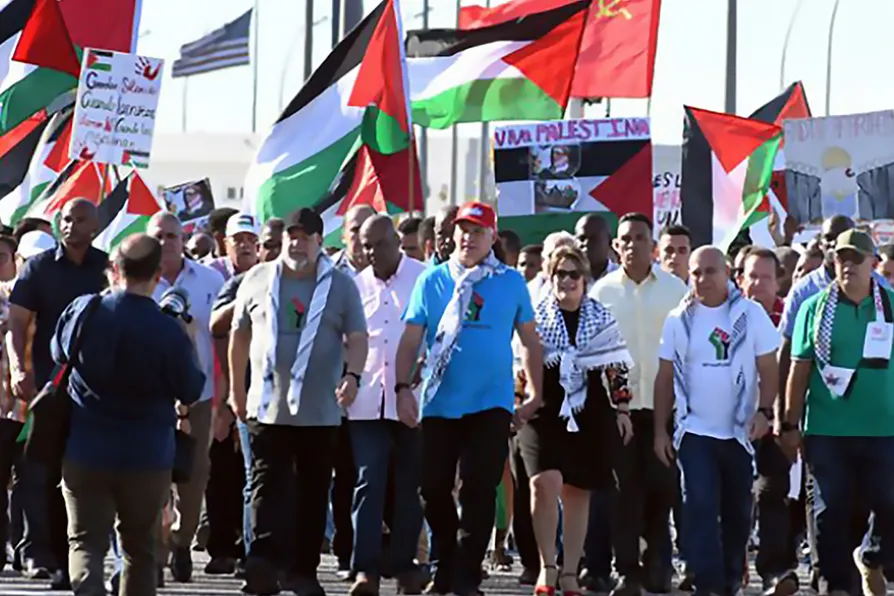The newly elected general secretary of the Aslef train drivers’ union speaks to Ben Chacko about union wins, a welcome shift in approach to the rail sector and what still needs to be done

 DEEDS NOT JUST WORDS: The march in Havana headed by Cuba's President Miguel Diaz-Canel, in the blue t-shirt, and Prime Minister Manuel Marrero Cruz in the grey t-shirt
[Trabajadores/Joaquin Hernández Mena]
DEEDS NOT JUST WORDS: The march in Havana headed by Cuba's President Miguel Diaz-Canel, in the blue t-shirt, and Prime Minister Manuel Marrero Cruz in the grey t-shirt
[Trabajadores/Joaquin Hernández Mena]
THE Palestinian people’s fight for national liberation stands at the centre of the struggle for socialists, progressives and all those seeking to build a better world in the 21st century.
For decades, Latin America’s left has been among Palestine’s strongest allies and, as a genocidal war has been waged against the Palestinian people in recent months, left governments and movements in Latin America have been vocal in their condemnation of what Hugo Chavez once described as the “terrorist and murderous state” of Israel.
From the moment it came into existence, revolutionary Cuba has been at the forefront of this movement in the region. From Che Guevara’s visit to the refugee camps of Gaza in 1959, Cuba has been unwavering in its support for the Palestinians – providing direct assistance to the Palestinian fedayeen (guerillas) in the ’60s and ’70s, severing all diplomatic relations with Israel in 1973 and supporting Palestine’s attempts to gain international recognition as an independent state in recent years.

ISAAC SANEY points to the global stakes involved in defending the Cuban revolution against imperialism and calls for resistance

Where normally only the US and its ally Israel vote to strangle Cuba economically, there have been special efforts to slander and isolate the besieged socialist island nation year — so we must redouble our solidarity, writes TARIQ ANDERSON

The recent speech by Cuba’s President Miguel Diaz-Canel is an affirmation of Amilcar Cabral’s revolutionary principle, writes ISAAC SANEY










